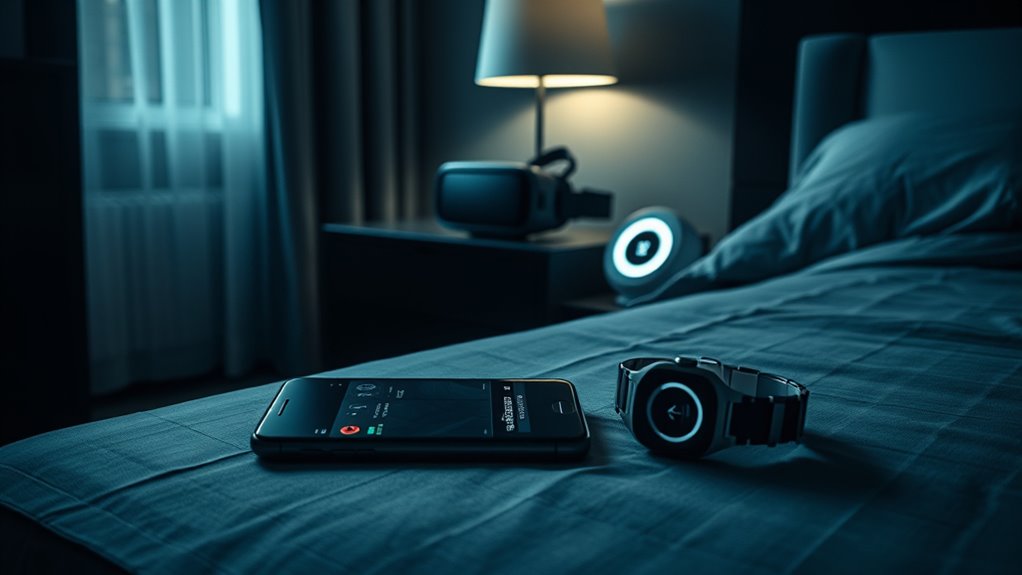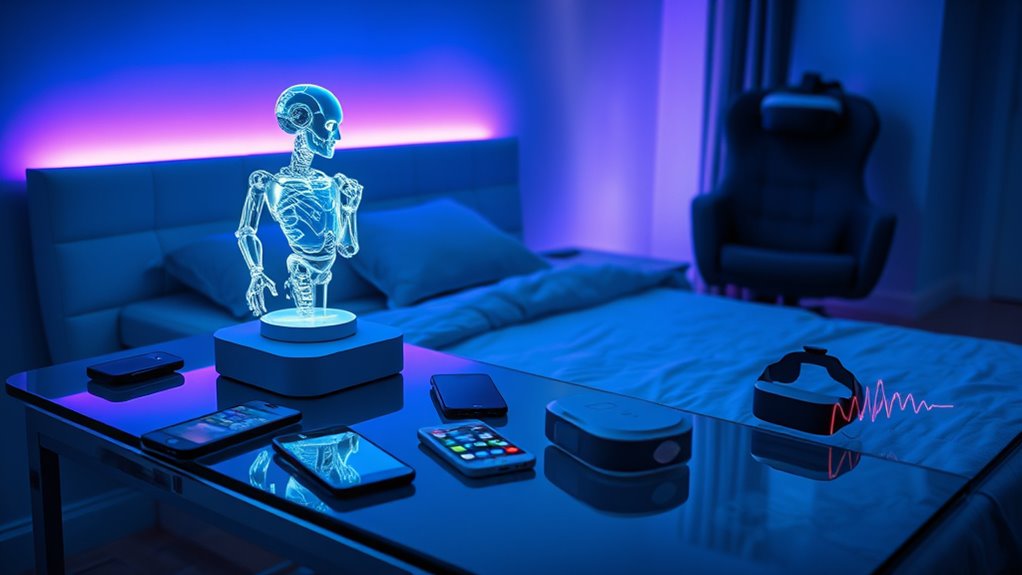Recent Trends: Technology Is Dramatically Changing How Infidelity Is Conducted and Discovered. There’S a Boom in Spyware and Tracking Apps Marketed to Suspicious Partners – Raising Ethical Questions About Privacy Versus Trust. at the Same Time, the Rise of AI and Virtual Companions Presents a Futuristic Dilemma: Some People Are Forming Intimate Bonds With AI Chatbots, Even Engaging in Explicit “Affairs” With Them, Which Is a Growing Trend (Millions Have Downloaded AI Companion Apps). Is That Cheating? Many Say Yes. We’Ve Also Seen Technology Bite Cheaters Back: From Incriminating Text Trails to Gadgets Like Fitbits Inadvertently Exposing Affairs (One Famous Case Involved a Spike in a Man’S 4 A.M. Heart Rate Alerting His Girlfriend to Infidelity!). Discussions About Location Sharing (Find My Friends, AIrtags) Revolve Around Whether Constant Digital Transparency Helps or Harms Relationships. Moreover, Cheaters Are Getting Savvy With Secret Tools – Disappearing-Message Apps, Hidden Photo Vaults, “Panic Buttons” on Affair Sites – and People Want to Know What to Watch For. Looking Ahead, Emerging Tech Like Sex Robots, VR Sex, and Deepfakes Pose New Questions About What Counts as Cheating. the Titles Below Explore These Cutting-Edge Issues at the Intersection of Tech and Love
Recent tech trends are changing how infidelity happens and is uncovered. Spyware and tracking apps let partners monitor activities secretly, raising privacy debates. AI chatbots are now forming emotional, even explicit, bonds, making some ask if that’s cheating. Gadgets like Fitbit can accidentally expose affairs, while tools like disappearing messages and hidden vaults help cheaters stay undetected. As technologies like sex robots and deepfakes emerge, understanding these shifts helps you recognize the evolving landscape of digital love and betrayal.
Key Takeaways
- Spyware, tracking apps, and digital logs enable covert monitoring, raising ethical concerns about privacy and trust in relationships.
- AI chatbots and virtual companions are fostering emotional and sexual bonds, challenging traditional definitions of fidelity.
- Devices like Fitbits can inadvertently reveal infidelity through physiological data, such as abnormal heart rate spikes.
- Cheaters use secret tools like disappearing messages, hidden photo vaults, and panic buttons to conceal infidelity.
- Emerging technologies like sex robots, VR, and deepfakes complicate notions of cheating, prompting ongoing ethical and relational debates.

Have recent technological advancements changed the way people cheat? Absolutely. Today, you’re living in an era where digital tools make infidelity more accessible and clandestine. Spyware and tracking apps flood the market, specifically designed for suspicious partners who want to monitor their significant others’ activities. These apps allow you to track messages, locations, and even listen to calls without the target’s knowledge. While some see them as tools for reassurance, others argue they cross ethical boundaries, raising serious questions about privacy and trust. The line between protecting your relationship and invading personal space can become blurred, leaving many wondering if constant surveillance fosters genuine connection or just breeds suspicion.
Digital tools like spyware and tracking apps blur the line between trust and invasion in relationships.
Meanwhile, artificial intelligence and virtual companions present a futuristic dilemma. Millions have downloaded AI chatbot apps to engage in conversations that feel surprisingly real. Some even form deep emotional or intimate bonds with these virtual entities. For some, engaging in explicit “affairs” with AI chatbots isn’t just harmless fun—it’s viewed by many as a form of cheating. The question arises: is forming an intimate relationship with a machine cheating? Many say yes, arguing it replaces genuine human connection and undermines trust in real relationships. This trend pushes the boundaries of what we consider infidelity, forcing us to rethink emotional fidelity in an increasingly digital world.
Technology also bites back against cheating attempts. Incriminating text trails, GPS logs, and even fitness trackers like Fitbit have exposed affairs unexpectedly. A notable case involved a man’s elevated heart rate at 4 a.m., which his girlfriend noticed and investigated, revealing an affair. These devices, meant to promote health, now serve as accidental witnesses to dishonesty. Location sharing apps such as Find My Friends or AIrtags generate constant digital transparency, sparking debate about whether such openness strengthens or weakens relationships. Some argue that knowing a partner’s location builds trust, while others believe it breeds paranoia and erodes privacy.
Cheaters have become increasingly shrewd, employing secret tools to hide their tracks. Disappearing-message apps, hidden photo vaults, and “panic buttons” on affair sites help them stay undetected. People are enthusiastic to learn what signs to watch for, seeking ways to detect deception before it’s too late. Looking ahead, emerging technologies like sex robots, VR sex, and deepfake videos further complicate the landscape. These innovations challenge traditional ideas of fidelity, prompting difficult questions: what counts as cheating? As technology continues to evolve, so will the strategies and dilemmas surrounding infidelity, forever transforming love and trust in the digital age.
Furthermore, the rapid development of privacy-invasive technology raises ethical concerns about surveillance and personal boundaries, complicating how trust is maintained or broken in modern relationships.
Frequently Asked Questions
Can AI Companions Truly Replace Human Emotional Connections?
AI companions can provide comfort and companionship, but they can’t fully replace the depth of human emotional connections. While you might find them helpful for loneliness or entertainment, they lack genuine empathy, shared experiences, and real understanding. Relying solely on AI for emotional fulfillment risks missing the nuances of real relationships. You should see them as supplements, not substitutes, for authentic human bonds that grow through trust, vulnerability, and mutual connection.
Are Spyware and Tracking Apps Legally Permissible in Relationships?
Think of spyware and tracking apps as double-edged swords—like a lighthouse guiding ships but also casting shadows. Legally, their use in relationships is murky; some jurisdictions see them as invasions of privacy, while others permit them under certain circumstances. You need to weigh trust against legality, knowing that deploying these tools can breach boundaries or serve as digital alarms. Always consider the ethical and legal landscape before steering this tricky waters.
How Do Privacy Laws Address Digital Surveillance in Infidelity Cases?
You should know that privacy laws vary by jurisdiction, but generally, digital surveillance without consent can violate laws like wiretapping or privacy rights. Law enforcement may have more leeway, but in personal relationships, using spyware or tracking apps often breaches privacy laws and can lead to legal trouble. Always consider legal and ethical boundaries before monitoring a partner’s digital activity to avoid potential civil or criminal consequences.
Will Emerging Technologies Like Sex Robots Redefine Traditional Notions of Cheating?
Imagine a world where the boundaries of love are drawn in the sand, then reshaped by digital waves. Emerging technologies like sex robots challenge traditional ideas of cheating, blurring the line between physical intimacy and emotional betrayal. You might find yourself questioning if engaging with a robot counts as infidelity. As tech advances, your definition of fidelity could shift, forcing you to reconsider what truly constitutes a breach of trust in love.
What Psychological Impacts Do AI Affairs Have on Human Relationships?
You might find that AI affairs can deeply affect your emotional well-being and trust in relationships. They can create feelings of betrayal, loneliness, or insecurity, even if no physical infidelity occurs. Engaging with AI companions might lead to emotional detachment from real partners or distort your understanding of intimacy. Over time, these impacts can undermine relationship stability, making it harder to build genuine, trusting connections with others.
Conclusion
As technology becomes the double-edged sword, it’s like walking a tightrope between trust and temptation. Each new device or app acts as a mirror, reflecting your choices and secrets. Remember, in this digital maze, your integrity is the lighthouse guiding you through the storm. Stay aware, stay honest—because in the end, the brightest light is the one you carry within, illuminating your path amid the shadows of innovation.









